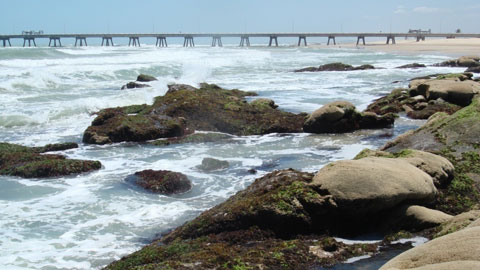Coastal Occupation Affects Tropical Reefs in Brazil
A study with the involvement of ICTA-UAB warns of the negative effects of coastal occupation and its environmental impacts on tropical reefs and biodiversity. Researchers state that the conclusions of the study can be compared to what has taken place in Western Mediterranean.

The analysis of the presence of marinas and fishing ports, beach kiosks and beachfront restaurants, urban areas and illegal sewer connections, etc. permitted researchers to obtain an index of impacts of human-induced pressures.
"In areas with the highest number of human activities, we had lower number of species in these tropical reefs, while low impact areas had greater biodiversity" explains Dr. Marcelo de Oliveira Soares, professor at the UFC, researcher at ICTA-UAB and author of the study. The author added that there is very little knowledge on how human impacts may affect the marine biodiversity of tropical reefs.
The results highlight the fact that urbanisation, lack of sanitation, docks and irregular constructions on the beachfront are relevant and negative for marine life. "The coast of Brazil has a rich marine life, but there is a lack of knowledge about its biodiversity. The results indicate the problems of disorderly coastal occupation. Also, they indicate the need for environmental planning to conserve marine biodiversity and the economic activities that depend on it, such as fishing", Marcelo de Oliveira Soares concludes.
"Many of the findings of the study are easily extrapolated to our shores" indicates Sergio Rossi, who adds that "the vulnerability of the coast is a classic that reverts to a worsening of biodiversity and of the health of marine populations”. Sergio Rossi insisted that this process has already taken place in the Western Mediterranean coast, causing major changes in fauna and flora.
This work was funded by CNPq (Brazilian National Council for Scientific and Technological Development) and CAPES (Brazilian coordination for the Improvement of Higher Education Personnel).
Original article
Portugal A.B., Carvalho F.L., Carneiro P.B.M., Rossi S., Soares M.O. "Increased anthropogenic pressure decreases species richness in tropical intertidal reefs." Marine environmental research, v.120, p.44-54, 2016. DOI:10.1016/j.marenvres.2016.07.005